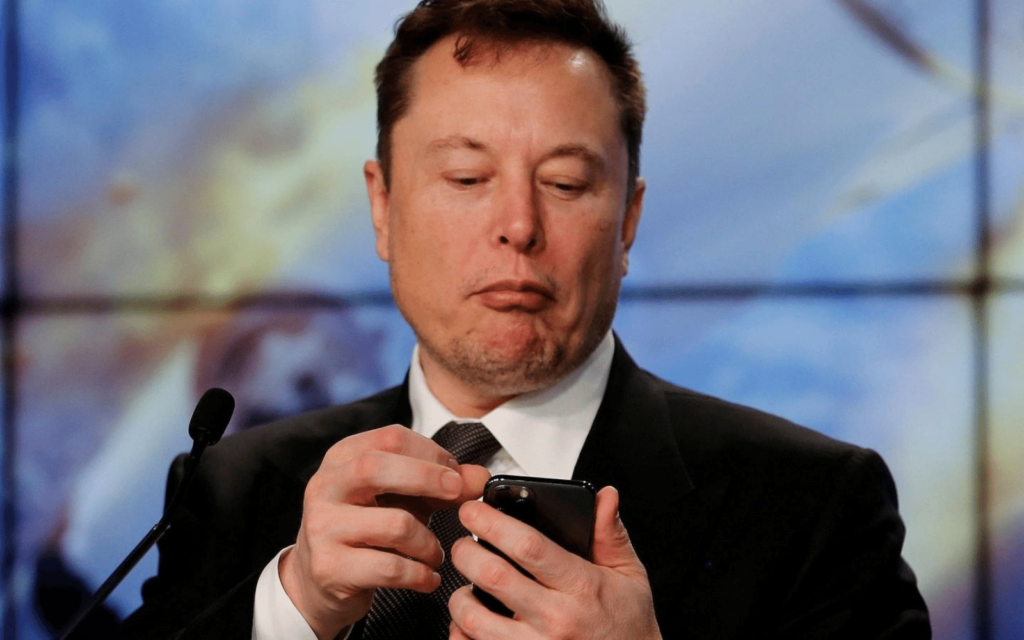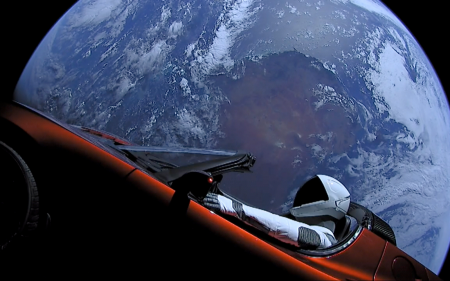How do you get internet access into a war zone? Ask the billionaire South African with his own constellation of internet-providing satellites. That’s precisely what the Ukraine vice prime minister, Mykhailo Fedorov, did two days after Russian forces began a “special military operation” – or invasion.
Fedorov tweeted Elon Musk on 26 February that “while you try to colonise Mars – Russia try to occupy Ukraine! While your rockets successfully land from space – Russian rockets attack Ukrainian civil people! We ask you to provide Ukraine with Starlink stations.”
Within 10 hours, Musk replied that his Starlink service “is now active in Ukraine”.
He then added; “more terminals en route.”
Starlink is a hugely ambitious plan to string thousands of low-orbiting satellites above the planet to provide internet access to otherwise unreachable places. It is just one of a new space race for this kind of connectivity, and it has just won itself a major PR victory – another of the unintended circumstances of Vladimir Putin’s heinous invasion.
“You can think of Starlink as filling in the gaps between 5G and fibre, really getting to the most difficult to reach 3% or 5%” of the global population, Musk said at MWC Barcelona in June 2021. “We’ll have 500,000 users within 12 months. It’s growing rapidly, and we’re continuing to [roll out] the user terminal.”
There are about 2,000 Starlink satellites already in space, and the service had 145,000 users in 25 countries at the end of January. The satellites are only 500km above the planet, which makes it quicker to send signals down to the ground.
On day four of the invasion – 28 February – Fedorov tweeted a picture of the back of a truck filled with branded boxes and wrote: “Starlink – here. Thanks, @elonmusk”.
Musk’s other company, SpaceX, is also in the middle of this weird geopolitical conflict. Russia has been the main supplier to the International Space Station (ISS), sending up Russian-made Soyuz rockets not only for flying astronauts there but also resupplying them.
SpaceX began supply runs in 2019 and in 2021 flew its first astronauts up in its Dragon capsule. This private-sector arrangement with a US firm might now be more strategically valuable than previously envisaged. It’s highly improbable, given the new Cold War, that NASA and its Russian counterpart, Roscosmos, will remain on speaking terms. The Russian space agency sarcastically tweeted, “If you block cooperation with us, who will save the ISS from an uncontrolled deorbit and fall into the US or Europe?”
The US has its answer: a guy from Pretoria. Who woulda thunk it?
Meanwhile, US President, Joe Biden, announced more sanctions against Russia for “access to finance and technology for strategic areas of its economy and degrade its industrial capacity for years to come.” This is a “major hit to Putin’s long-term strategic ambitions” – especially its aviation and space industries.
“We estimate that we will cut off more than half of Russia’s high-tech imports, and it will strike a blow to their ability to continue to modernise their military. It will degrade their aerospace industry, including their space program,” Biden said.
“Space, the final frontier” as the legendary science fiction TV series Star Trek began each episode. This time, that frontier looks more like a new front in a war than an endless expanse of uncharted discoveries.
The White House released a statement saying the sanction is a “Russia-wide denial of exports of sensitive technology, primarily targeting the Russian defence, aviation, and maritime sectors to cut off Russia’s access to cutting-edge technology.”
Although Biden said Putin must “pay a price” for this invasion, it is the ordinary Russians who will feel the brunt of these harsh economic sanctions. As the well-known African saying goes; when the elephants fight, it is the grass that is trampled. At least, through Musk, they have internet access.
This column first appeared in Daily Maverick




